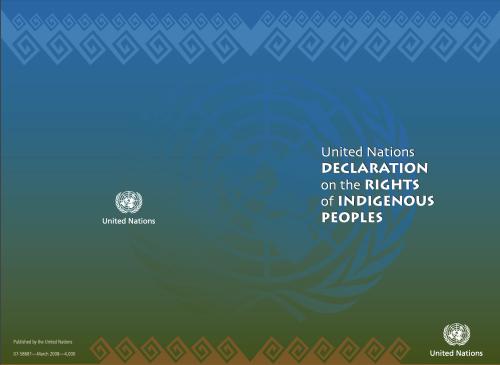US citizens don’t have human rights - unlike people in 25 other countries in the Western Hemisphere, Europeans, and Canadians...
This session explores the racist history of American human rights exceptionalism, looks at the ways cities and local governments have sought to integrate human rights into their communities, and considers how universities in general, and the humanities community in particular, could follow their lead in defending the human right to culture, science, and the arts; as well as use similar measures to promote and protect indigenous rights.
Article 15 - Convention on Economic, Social and Cultural Rights
1. The States Parties to the present Covenant recognize the right of everyone:
(a) To take part in cultural life;
(b) To enjoy the benefits of scientific progress and its applications;
(c) To benefit from the protection of the moral and material interests resulting from any scientific, literary or artistic production of which he is the author.
2. The steps to be taken by the States Parties to the present Covenant to achieve the full realization of this right shall include those necessary for the conservation, the development and the diffusion of science and culture.
3. The States Parties to the present Covenant undertake to respect the freedom indispensable for scientific research and creative activity.
4. The States Parties to the present Covenant recognize the benefits to be derived from the encouragement and development of international contacts and co-operation in the scientific and cultural fields.
Part 1. Dives into the Fujii v. California decision and what it means for the study and practice of human rights; efforts in San Francisco to implement the International Convention for the Elimination of Discrimination Against Women and the International Convention for the Elimination of Racial Discrimination; and Minneapolis’ work to become a UNICEF Child Friendly City based on the Convention of the Rights of the Child.
Read more:
CEDAW and the USA: When Belief in Exceptionalism Becomes Exemptionalism - Liane Schalatek, Heinrich-Böll-Stiftung
Could UC Davis become an Article 15 University - a university dedicated to the defense of the human right to culture and science?
Part 2. Introduces the “Land Grab” university concept – how the funding of US public land grant universities including UC Davis has been based on grants of stolen indigenous land.
Read more about the International Work Group for Indigenous Affairs and efforts at local implementation of UNDRIP and climate change initiatives.
What it would take to be an UN Declaration of the Rights of Indigenous People university like the University of British Columbia?

Speakers:
Convenor: Glenn Mitoma is a leader in Human Rights Education and has written extensively at the intersection of American Studies and Human Rights Studies. Currently, he helps lead UCSC’s Institute for Social Transformation and is author of Human Rights and the Negotiation of American Power. (Penn. 2013)
Keith David Watenpaugh studies the history, theory and criticism of human rights and humanitarianism and is an expert in genocide and its denial; he is founding director of the UC Davis Human Rights Studies Program. He is the 2021 winner of the O'Brien Award for Excellence in Human Rights Education from Human Rights Educators, Inc. and was a UC Davis Public Scholarship Faculty Fellow '21-'22. His most recently book is Bread From Stone: The Middle East the Making of Modern Humanitarianism (California, 2015) and he is writing The White Savior, the Waif and the Ends of Humanitarianism.
Marc Dadigan is a journalist and Ph.D. student in Native American Studies and writes on issues of land use, water and indigenous genocide. He is the associate editor of the Shasta Scout. He was a '20-'21 Public Scholars of the Future.
Lauren Peters (Agdaagux, Unangax) is a second year PhD student in Native American Studies at UC Davis with a Designated Emphasis in Human Rights concentrating on Human Rights of the Dead. That emphasis is to support her work finding and returning our Alaska Native children who died in government sponsored Indigenous boarding schools. S in '20-'21 she was a Mellon Public Scholar whose project centers around locating, documenting, and returning home Native American children who were stolen from their homes and died in US Government-sponsored Native American boarding schools.
